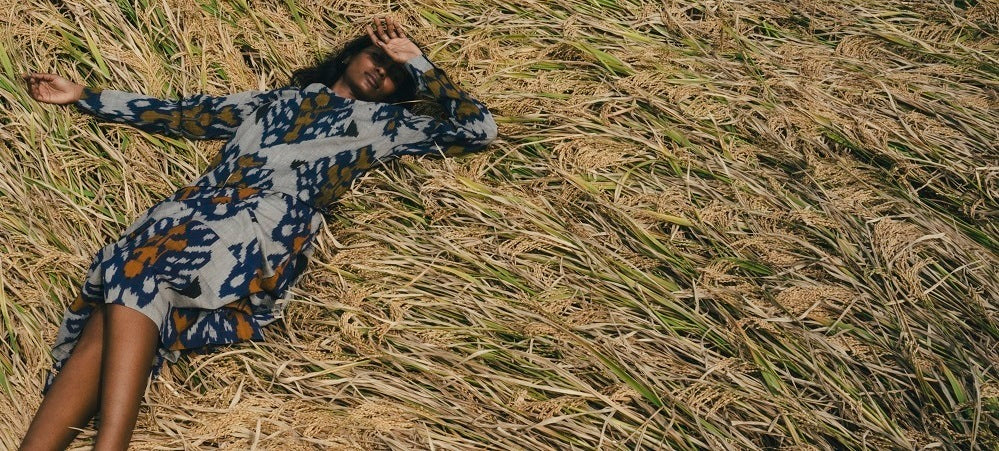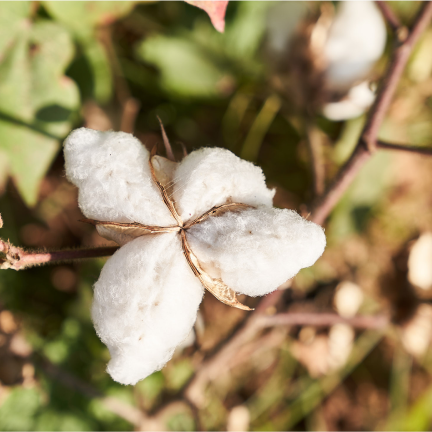Mithun is from Erode district in Tamil Nadu. After he finished his B.E in Electrical Engineering in Coimbatore in 2017, he chose not to go into business or pursue a career in I.T as his family hoped. Instead, he decided to learn about organic farming techniques and take over his family farm. He has now been practising organic farming for two and a half years, growing vegetables for his family to eat, along with cotton, black gram, and bananas. He is also integrating biogas into the running of the farm. He was determined to prove that organic farming could be more profitable and more productive than conventional farming. Through his success, other farmers have been able to learn about the potential of organic methods. Here, he talks to Nishanth Chopra about his journey, the opposition he has experienced, and plans for a healthier planet and future.

Nishanth: How did you get interested in organic agriculture?
Mithun: I was interested in farming when I was in 6th or 7th standard. Even though I had the idea of doing business or getting into the IT sector I wanted to learn about farming. As I didn’t get a job, I started working on the farm full time. I cultivated organic cotton along with black gram as an intercrop. My main reason to get into farming is understanding the struggles that my parents faced while raising me and earning a living from farming, so I didn’t want to sell this land or lease it to someone else.
Nishanth: It is a very good thought, not everyone thinks like you. How many years have you been farming?
Mithun: It is about four years.
Nishanth: How was it when you started and how is it now? How have you convinced your parents to incorporate organic practices?
Mithun: When I started, my family told me you won't get married if you go into farming. I made a plan to earn 30,000 to 40,000 INR per month (£280-380). I wanted to eat good quality organic food and my kids should be able to have that too. It will take 4 to 5 years but I want to prove that organic farming can be profitable so I’m collecting all the data. My parents always believed conventional farming is more profitable than organic but I’m selling the organic blackgram we grew as an intercrop for 110 INR/kg compared with conventionally grown blackgram which sells for 100 INR/kg.
Nishanth: Organic farming is not just about not using chemicals. There are other practices involved like using intercrops and you use biogas slurry, etc. Tell us about some of the processes you have incorporated.
Mithun: My father installed drip irrigation in 2013 which made it easy to give organic liquid inputs directly to roots of the plants and it doesn’t get wasted like conventional irrigation. For example if I sow 10 brinjal seeds I could apply all the fertilisers directly to the plants. In farming, we have to analyse the soil to find its nature and deficiencies.
“Humans are tall and short, black and white, we have different food habits and similarly, the earth is different in each region.”
- Mithun
We did banana plantation using conventional farming methods and 80 per cent of the cost just went into buying chemical pesticides and fertilisers for the farm. Only the fertiliser shops got profit and not the farmers. People are hesitant in preparing organic fertilisers by themselves because of the extra work involved and the unpleasant smell while chemical fertilisers are readily available. My parents’ generation don’t know about organic farming, applying chemicals if there are weeds or pests and diseases for a quick remedy. But in previous generations, our ancestors practiced natural farming methods.
In natural farming we grow plants around the field as border crops like castor and sunhemp. Pests attack the border crop first so we can monitor the pests easily. With natural farming, prevention is better than cure. This is just the same as how we protect our body from diseases like cancer by eating vegetables, healthy food and detoxing the body. I wanted to try with 1 acre initially, and I have now converted 3 acres to organic farming.
Nishanth: When you partnered with us to do organic cotton, your dad was concerned about the profit and yield. You were one of the farmers that we first partnered with and from your experience, many farmers joined us. What made you expand the organic farming from 1 acre to 3 acre with us?
Mithun: Profit was my parents main concern and they said you will definitely not get profit because they didn’t understand organic farming. I learned new things from Google and YouTube regarding farm practices. I invested 50,000 INR for 1 acre organic cotton farm and I earned 1,30,000 INR at the end. Even if I include miscellaneous expenses I got a solid profit of 65,000 INR. Before this, I did banana and sugarcane cultivation where I spent 25,000 to 30,000 INR per acre just for chemical fertilisers. Now the land is not spoiled and we apply natural fertilisers to promote nitrogen, phosphorus and potassium.
Nishanth: You have cultivated sugarcane and banana, how many days’ crop is that and how much profit did you get? You could have continued growing banana but why did you decide to grow cotton, if banana cultivation was profitable?
Mithun: There was profit when I did banana and sugarcane cultivation but it was not organic. Also there was no one to guide me about the organic practices used in banana. But in cotton, Oshadi’s agriculture representative visited my farm and guided me on organic practices. With conventional cotton farming, the yield is 1000 kgs/acre and in organic farming yield is 700 to 800kgs/acre. Conventional cotton price is 70 INR/kg, organic cotton is 110 INR/kg. So I get the same profit and the advantage is I didn’t spoil the land with chemicals. People should be educated about organic agriculture. With experience, now I can show how to grow cotton, castor, blackgram and the agricultural practices for 30 days and 70 days of cultivation. Everyone should be educated to know about organic practices in sugarcane, banana and other crops.
Nishanth: What crops do you grow along with cotton and why are they necessary?
Mithun: Cotton is the main crop, our secondary crop is blackgram.
“Blackgram roots help in fixing nitrogen to the soil. It gives us extra income and it is an investment because we cut the plant and incorporate it into the land which enriches the soil. Pests attack the blackgram preventing it from infesting the cotton just like castor in the borders. ”
- Mithun

We also have flowers like marigolds which attract many honey bees to improve pollination. Better pollination increases yield. We are growing castor and sun hemp as a border crop. From that I get castor seeds. My grandfather used to grow castor along with turmeric and they burned castor stalks as fuel for boiling the turmeric with water. They thought it was only useful for burning, but it also prevented pests.
Nishanth: We work with many farmers, and you are doing something unique with biogas. Tell us about the biogas plant and how it works? How does it support your farm?
Mithun: We had a biogas plant for a long time. We have many cows and buffalo, so every day we collect the dung and mix it with water. We feed that into our biogas plant which is digested in 20 days and the output gas is used for cooking in my home. We are using the sludge from the biogas plant as manure for the farm. This biogas plant was installed by my grandfather to replace a traditional wood burning stove. There is much less expense in maintaining it and I don’t have to buy gas from outside. I made dosa using normal gas and biogas, and it made a difference. Normal gas cooking is quick and the taste is not that good, but with biogas, slow cooking happens which makes the dosa soft and tasty. Even if the biogas leaks it is not going to cause fire accidents like normal gas which is highly flammable. We have the cattle waste as a source and the biogas plant was maintained by my grandfather, then my father, now I’m doing it. It is very useful for both household purposes and farming.

Nishanth: It’s not just about farming techniques. How do you bring organic practices into your everyday life?
Mithun: We can follow organic practices in day to day life by even using the water which we use in the shower to grow plants like banana. You can also use it to grow flowers which smell nice. This grey water gives nutrients to plants, just like leaves take carbon dioxide and give out oxygen. Our ancestors used green gram flour instead of chemical soap. We can grow chilli plants. Even if we sow 4 or 5 seeds it will give us produce for 3 to 4 months.
“With 1 cent of land you can grow chilli, brinjal, tomato and spinach. We can grow all the vegetables that we use in cooking. Ginger and garlic can be used as pest repellents as well as used in cooking.”
- Mithun
We will attract more birds and we can also grow vegetables on a terrace and balcony. I grow squash, bottle gourd, mango, gooseberry, sapota, custard apple, and guava on the farm. Custard apples prevent cancer. All trees give us fruits every year and we have the satisfaction of eating organic food. Hibiscus flowers and guava leaves are used to make tea which tastes good and also has health benefits. We should eat healthy food while at home. Nature has the power to protect and also to destroy us. If we do things in harmony with nature, our life will be healthier and happier.
Nishanth: Thank you Mithun, it’s inspiring to work with you
Watch the interview video below:












